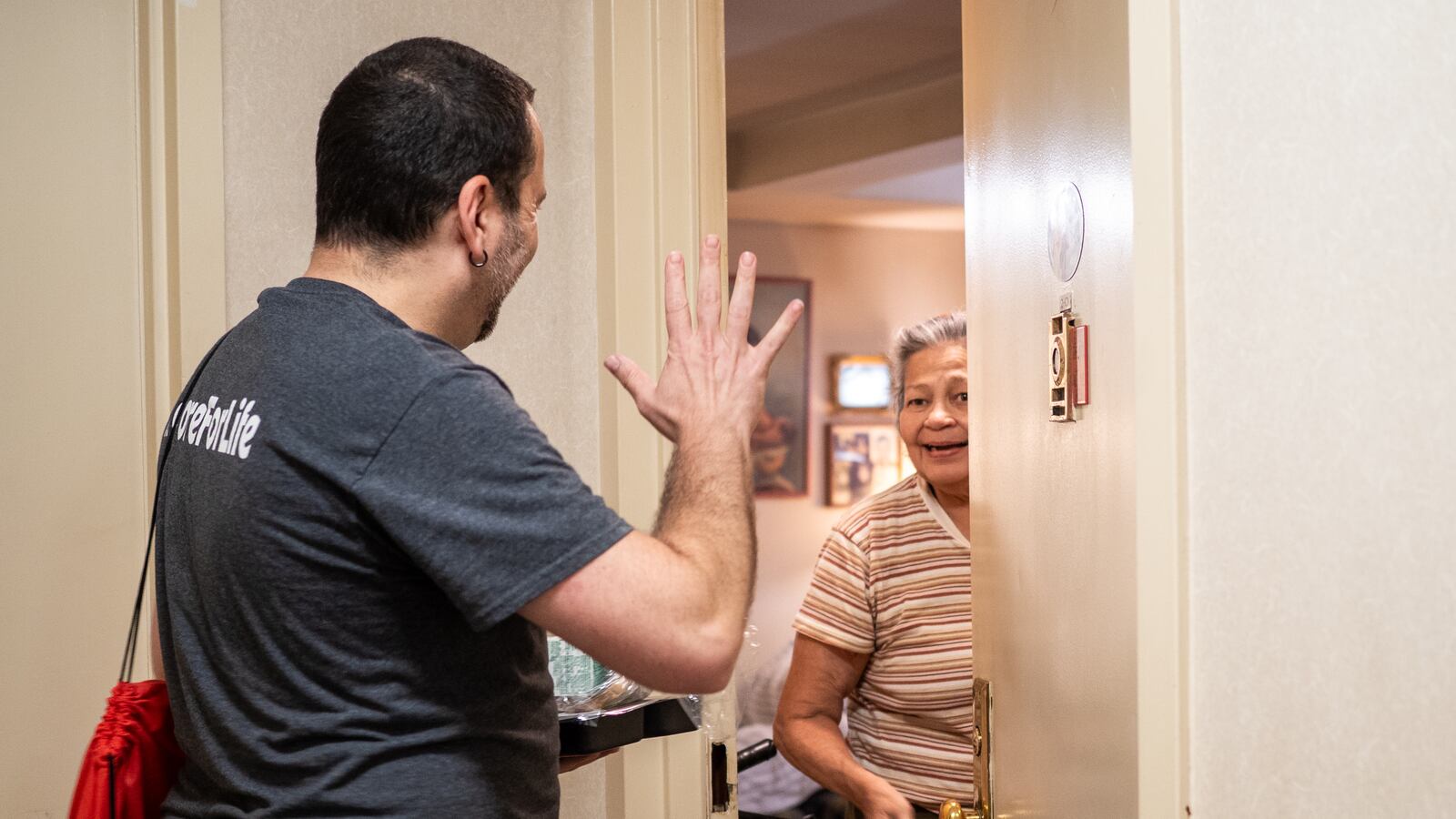Public health, explained: Sign up to receive Healthbeat’s free New York City newsletter here.
On a hot August morning, Jeremy Kaplan knocked loudly on the front door of an apartment in Midtown Manhattan and called out, “Lunch!”
Phyllis Radcliff, 60, opened the door with a smile, clapped her hands, and said, “God bless you!”
Radcliff ushered in Kaplan, the executive director of Encore Community Services, a nonprofit serving older adults. He handed out hot meals of chicken adobo, yellow plantains, and steamed vegetables to Radcliff and her husband, Edward Perez, 71.
“The food is great, and I appreciate you, because we have health issues sometimes, and we can’t get out,” Radcliff said.
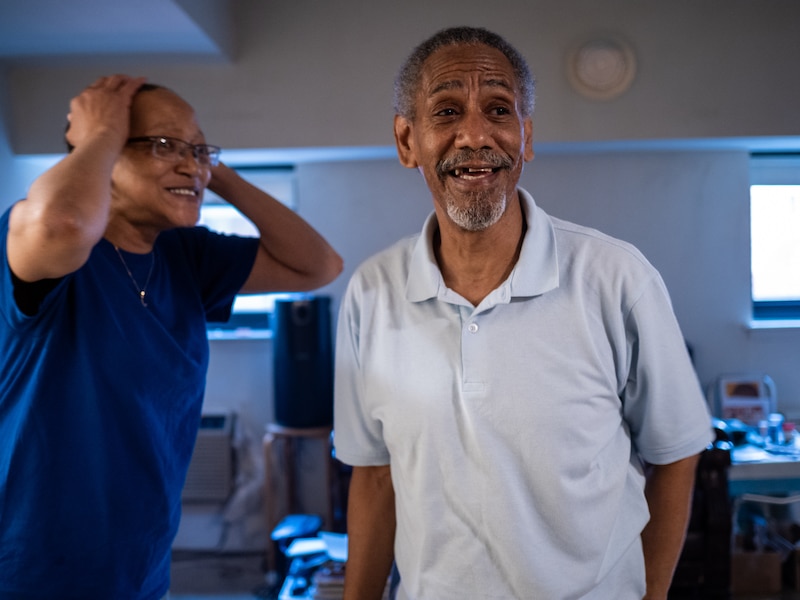
Older New Yorkers like Radcliff and Perez are part of a growing demographic in New York City for whom food insecurity is a significant concern. Over the past decade, the population of New Yorkers at least 65 years old has grown by a third, reaching an all-time high, according to recent research from the Center for an Urban Future, a nonpartisan policy organization. In that time, the number of older New Yorkers living in poverty surged by 41%.
Accessing healthy, affordable food is often a challenge. The cost of food is on the rise, while federal cuts imperil food pantries. And looming cuts for federal programs like SNAP, Medicaid and Medicare leave older New Yorkers in an especially vulnerable position.
“The impact of the government cuts on the people we serve could be catastrophic,” said Beth Shapiro, the chief executive of Citymeals on Wheels, a nonprofit that works with providers like Encore to deliver meals to homebound older New Yorkers.
Even those tapped into available services like home meal delivery programs aren’t getting enough to eat, experts and advocates say. In 2023, researchers from the CUNY Urban Food Policy Institute partnered with Citymeals on Wheels to survey 500 older New Yorkers using older adult centers or home-delivered meal programs. Nearly half of the respondents reported food insecurity in the previous 12 months. Among those who received home-delivered meals, 60% reported food insecurity.
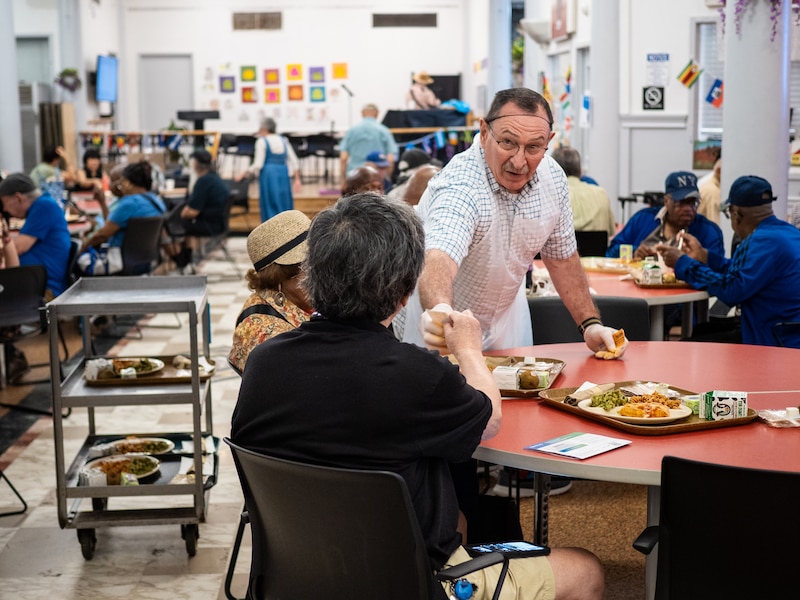
For older New Yorkers, physically accessing to food can be a challenge, but it’s “poverty that is really the root cause of food insecurity in this population,” said Dr. Nevin Cohen, an associate professor at the CUNY Graduate School of Public Health and director of the CUNY Urban Food Policy Institute. He noted that 65% of respondents were living on $15,000 a year or less.
A broader survey, recently published by the New York City Department for the Aging, found that among 8,600 older New Yorkers, about 30% reported difficulty or a complete inability to purchase affordable, healthy food in their communities.
Service providers working to alleviate hunger say they are unable to fill the depths of the need they encounter.
“Many of the people who we deliver to tell us it’s their only source of food,” Kaplan said. “Many of them are rationing out the one meal we give them, throughout the day. It’s just not enough, any way you cut it.”
The Department for the Aging’s Home Delivered Meal program funds the delivery of one meal per day on weekdays and holidays to homebound older New Yorkers. In the 2024 fiscal year, the agency served a total of 4,209,261 meals to 24,572 people, a 9% decline in meals and 11% decline in recipients over the previous year, which the agency attributed in a city report to “provider transition and staffing deficits.”
At Encore, city funding supports weekday and holiday meal delivery, while Citymeals on Wheels funds weekend and emergency meals, Kaplan said. Neither source fully covers the organization’s operations, requiring private fundraising, he noted.
One of Encore’s older adult centers is tucked away from Times Square in the basement of a church on West 49th Street. Recently, workers and volunteers prepared meals for home delivery, scooping broccoli, pasta, and chicken parmesan out of vats and into individual trays. Others packaged bundles of milk, bread, and fresh fruit.
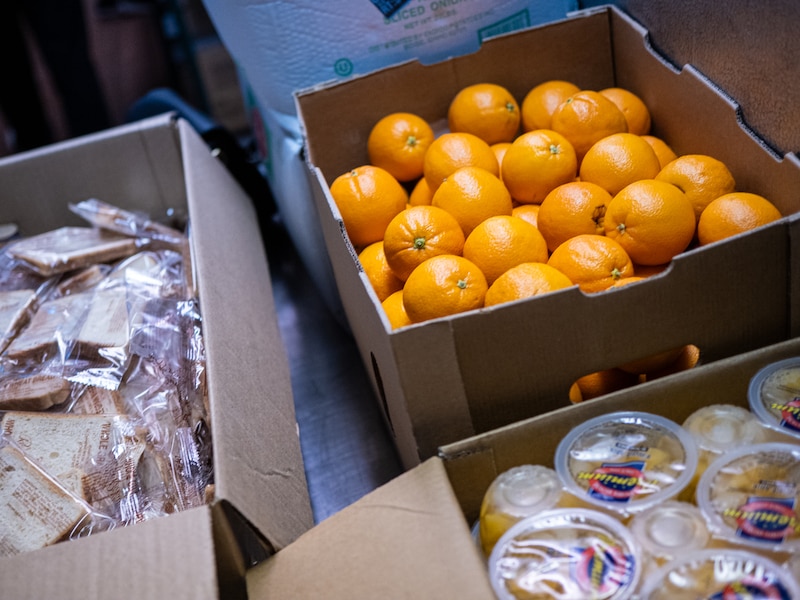
One of those meals ended up in the hands of Nini Johannesen, 68.
“Doing okay, Nini?” Kaplan asked as he entered her apartment. In addition to providing nutritious food, the meal deliveries function as a brief point of social contact and a wellness check.
Johannesen said she was doing well, though her vision and balance bothered her — and her home attendant was on vacation. The meals were a bright spot, she said.
“It’s the only way I eat some vegetables,” she said.
Cohen, of the CUNY Urban Food Policy Institute, noted that providing older adults with adequate nutrition is key to ensuring that they “remain healthy and independent as long as possible.” Poor nutrition, he said, is a leading cause of chronic disease.
Nonprofits across the city have launched innovative approaches to meeting older New Yorkers’ needs, reversing the traditional food pantry model. The West Side Campaign Against Hunger has partnered with Citymeals on Wheels to create a pilot program delivering free boxes of groceries to older adults in the Bronx who are still able to cook, said Stephanie Moshier, the organization’s director of partnerships and community engagement.
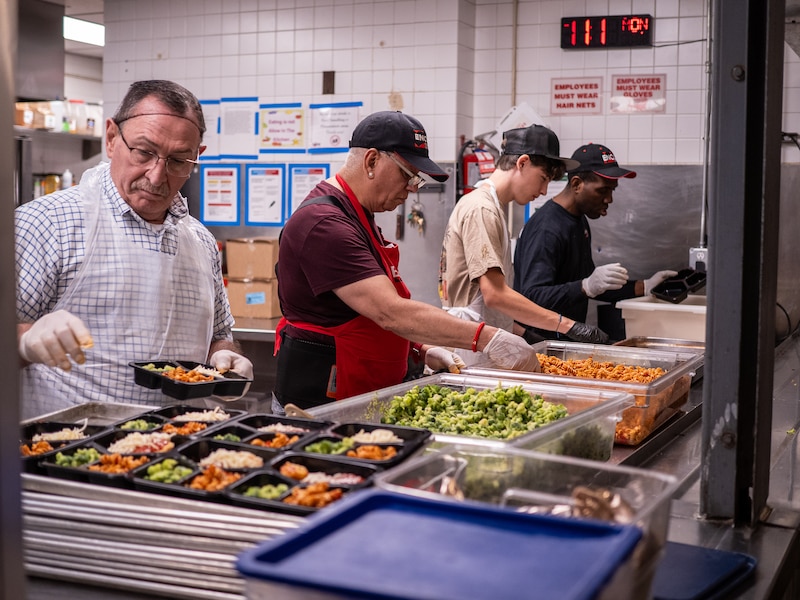
“A lot of these programs we’ve developed are more about bringing food to people, meeting people where they are,” Moshier said. “They don’t have to spend money on transportation to come to the Upper West Side to get food.”
Perez said he and his wife started receiving Encore’s home-delivered meals this summer. Issues with his knees, shoulders and back make it difficult to shop for groceries, he said.
The food has been excellent and well-seasoned, Perez said. He only wished the portions could be bigger. But the meals had made a difference.
“It’s a helping hand, financially,” he said. “And it’s also great to know that people care enough to cook you a good meal.”
Eliza Fawcett is a reporter covering public health in New York City for Healthbeat. Contact Eliza at efawcett@healthbeat.org.

